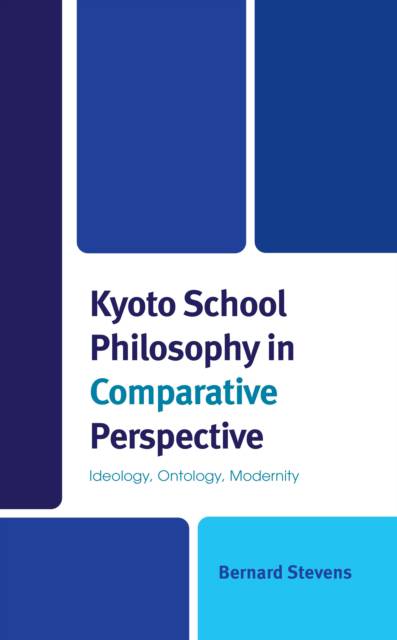
- Afhalen na 1 uur in een winkel met voorraad
- Gratis thuislevering in België vanaf € 30
- Ruim aanbod met 7 miljoen producten
- Afhalen na 1 uur in een winkel met voorraad
- Gratis thuislevering in België vanaf € 30
- Ruim aanbod met 7 miljoen producten
Zoeken
Kyoto School Philosophy in Comparative Perspective
Ideology, Ontology, Modernity
Bernard Stevens
Hardcover | Engels
€ 169,95
+ 339 punten
Omschrijving
Kyoto School Philosophy in Comparative Perspective: Ideology, Ontology, Modernity presents the thought of the Kyoto School, the most famous Japanese philosophical movement of the twentieth century, by comparing the philosophy of its most representative members--Nishida and Nishitani--with some better known thinkers in the West: Husserl, Heidegger, Merleau-Ponty, Paul Ricoeur, and Michel Henry. Bernard Stevens highlights the proximity of this movement of thought to the European phenomenological current that influenced it. However, the book also addresses an eminently problematic reality: the affiliation of some of its members with the militarism of the 1930s and 1940s. The political philosophers Arendt and Maruyama provide useful guidance here, in clarifying one of the central issues of this episode: the ideology of "overcoming modernity", supported by some of the younger disciples of Nishida. This book proposes intellectual conditions for both critical and appreciative receptions of one of the most fascinating philosophical adventures of the twentieth century.
Specificaties
Betrokkenen
- Auteur(s):
- Uitgeverij:
Inhoud
- Aantal bladzijden:
- 182
- Taal:
- Engels
Eigenschappen
- Productcode (EAN):
- 9781666920482
- Verschijningsdatum:
- 31/01/2023
- Uitvoering:
- Hardcover
- Formaat:
- Genaaid
- Afmetingen:
- 152 mm x 229 mm
- Gewicht:
- 439 g

Alleen bij Standaard Boekhandel
+ 339 punten op je klantenkaart van Standaard Boekhandel
Beoordelingen
We publiceren alleen reviews die voldoen aan de voorwaarden voor reviews. Bekijk onze voorwaarden voor reviews.








